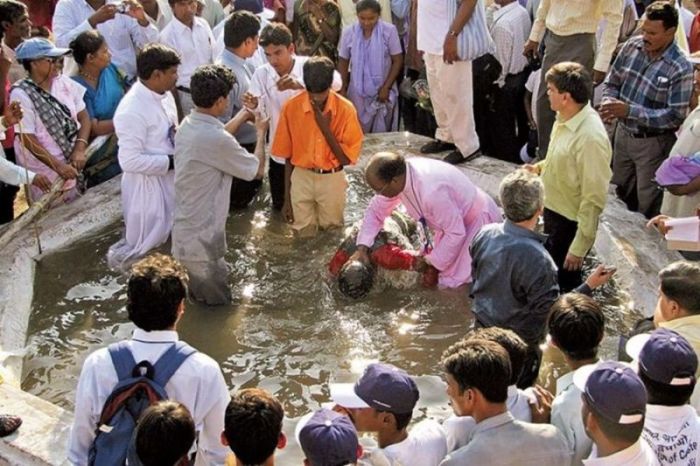4 Countries in Asia Pass Laws Banning Religious Conversions

Four countries in South and Southeast Asia have laws that ban conversion of their citizens away from the majority religion, and two other countries are considering implementing the legislation, apart from numerous other nations in the region that prohibit blasphemy and apostasy, aimed mostly at Christian missionary work.
On Tuesday, Alliance Defending Freedom's international wing will present a white paper on laws regulating conversions at the Policy Briefing on the Global Crisis in Religious Freedom with U.S. Ambassador Samuel Brownback.
Commonly known as anti-conversion laws, the legislation regulates the act of converting to another religion through vaguely defined terms of "inducement," "force" or "fraudulent means," according to the paper. These words could be meant to include social work, praying for the sick or even evangelism.
These laws are in place in parts of India and throughout Nepal, Myanmar and Bhutan, while Sri Lanka and one province in Pakistan have yet to pass a similar bill. Barring the bill in Pakistan, where minority religions are allegedly being protected through the legislation, the legislation is based on the premise that majority religion is under a threat. As a result, it incites violence.
"No person or group should live in fear of being killed, tortured, or oppressed because of their religious beliefs. The rise of anti-conversion laws worldwide testifies to a growing crisis in religious freedom," Balakrishnan Baskaran, Legal Consultant to ADF International in India, was quoted as saying.
Last month, the North Indian state of Uttarakhand became the eighth state in the country to pass the legislation, which is officially named the "Freedom of Religion Act" in India but has the allegedly hidden intent to punish those who facilitate religious conversions, especially conversions from Hinduism to Christianity. That law carries a jail term of up to two years.
"Hindu nationalists' stated rationale for anti-conversion laws is that Christians and Muslims are using coercion to convert vulnerable Hindus in the lowest castes, also known as Dalits or Untouchables," the paper reads. "Nationalists also have cited the need to 'protect the cultural identity of tribal communities of the country.'"
Anti-conversion laws first came into existence in the 1930s in the states where Britain did not have direct rule at the time. The Indian parliament considered several anti-conversion bills following independence in 1947, but all were eventually dropped. "However, due to India's federal structure, state legislatures have been able to pass anti-conversion measures."
While hardly any Christian worker has been convicted by a court under the law in India, members of the minority community are routinely accused of and charged with "forcible" conversions of Hindus. Christians and rights groups say the law is used as a tool by right-wing Hindu groups to harass and persecute Christians and to restrict Hindus from converting away from their religion.
Christian persecution, which includes violent attacks, destruction of Christian property and false accusations, has risen in India since the Hindu nationalist Bharatiya Janata Party won the general election in 2014.
While many Muslim-majority countries have laws banning apostasy and blasphemy, which too seek to check conversions, Hindu- and Buddhist-majority countries in Asia use anti-conversion laws to maintain the religious demographic status quo. The majority of Nepal's population is Hindu, while Buddhists are in majority in Bhutan, Myanmar and Sri Lanka.
The Pew Research Center reports that in the year ending December 2015, 42 countries restricted conversion from one religion to another, up from 31 countries in June 2007.





























